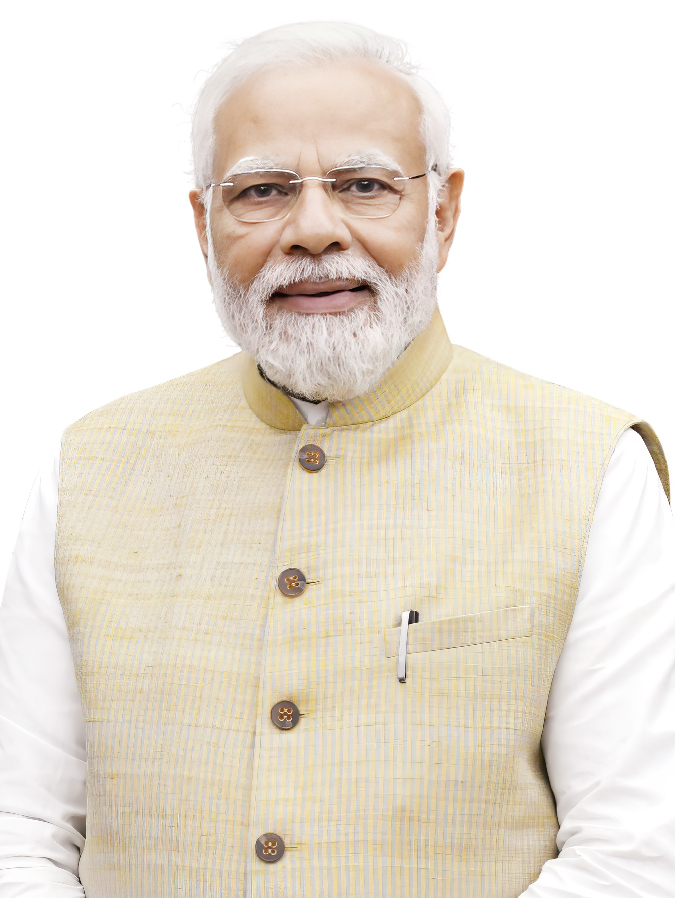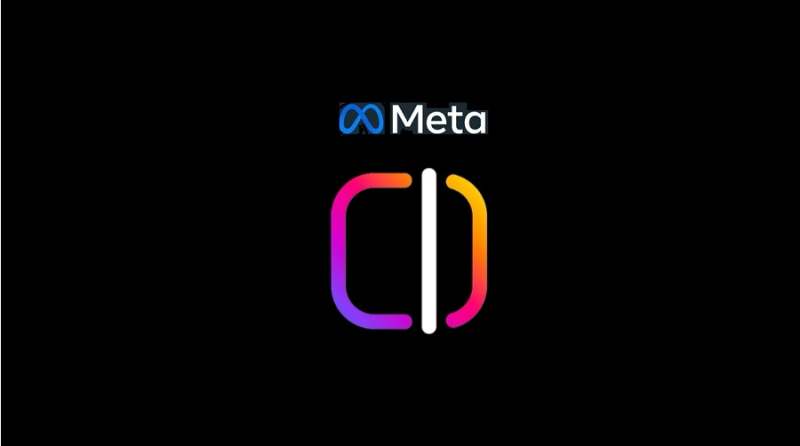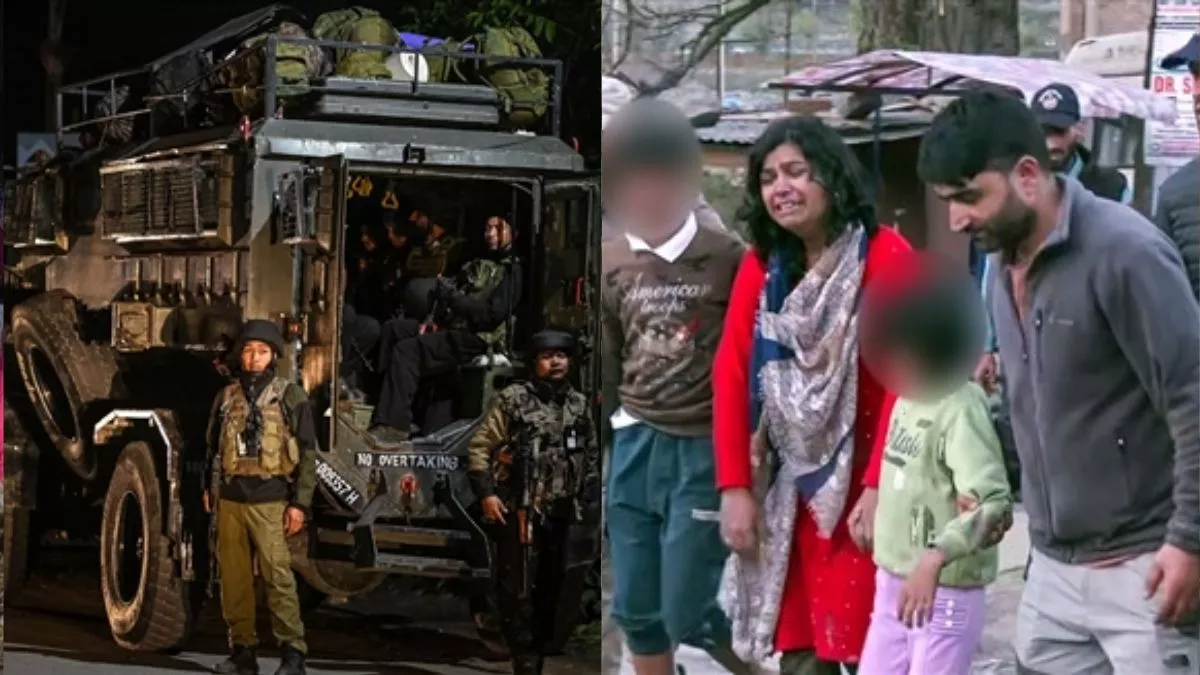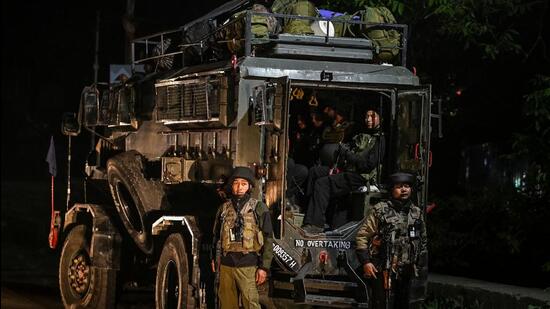Politics
New Key Government Officials to Discuss Aadhaar
While Aadhaar-Voter ID linking has the potential to improve electoral transparency, its implementation must be handled with caution.

Key Government Officials to Discuss Aadhaar-EPIC Integration
In a significant move towards electoral reforms, the Election Commission (EC) has scheduled a high-level meeting next week with officials from the Union Home Ministry, Law Ministry, and the Unique Identification Authority of India (UIDAI). The discussion will revolve around the implementation of Aadhaar-Voter ID linking, a process aimed at cleaning up electoral rolls by identifying and removing duplicate voter registrations.
The meeting follows concerns raised by opposition parties, including the Trinamool Congress (TMC), over allegations of electors in West Bengal and other states having the same Electors Photo Identity Card (EPIC) number. These irregularities have intensified the debate on whether the linking process is truly error-free and beneficial for the democratic process.
The Purpose of Aadhaar-Voter ID Linking
The government has promoted Aadhaar-EPIC linking as a tool to:
- Detect and remove duplicate and fraudulent voter registrations.
- Strengthen electoral transparency and credibility.
- Prevent impersonation and voter fraud.
- Facilitate easy voter verification and registration.
Following the 2021 amendment to the Representation of the People Act, 1951, the Election Commission started collecting Aadhaar details on a voluntary basis. However, full integration of the two databases is yet to take place, pending legal and technical considerations.
Concerns Raised Over Aadhaar-EPIC Integration
Despite the intended benefits, opposition parties, civil rights activists, and cybersecurity experts have raised several concerns about the Aadhaar-Voter ID linking initiative.
1. Risk of Voter Disenfranchisement
A major fear is that linking errors or mismatches in data could lead to eligible voters being mistakenly removed from electoral rolls. This could disproportionately affect marginalized communities, migrant workers, and individuals who lack proper documentation.
2. Data Privacy and Security Issues
Linking Aadhaar with voter IDs raises significant data privacy concerns. Experts warn that storing and sharing sensitive voter information could lead to:
- Unauthorized access and misuse of data.
- Increased surveillance of voters.
- Potential exploitation of personal information for political purposes.
With no strong data protection law in place, privacy advocates argue that voter information could be at risk of being misused by third parties.
3. Electoral Roll Errors and Manipulation Risks
The TMC’s recent allegations regarding multiple electors sharing the same EPIC number have raised concerns about inaccuracies in the electoral rolls. If Aadhaar-EPIC linking is implemented without addressing these errors, it could lead to further confusion and disenfranchisement.
Challenges in Implementing Aadhaar-Voter ID Linking
Technical and Administrative Complexities
Ensuring a seamless linkage between the Aadhaar and voter ID databases requires overcoming significant logistical and technical challenges. These include:
- Integrating large datasets across multiple government agencies.
- Addressing inconsistencies in voter records.
- Preventing database errors that could lead to wrongful deletions.
Legal and Ethical Implications
Although Aadhaar is not mandatory for accessing government services, its voluntary nature in the voter ID linking process raises questions about:
- Whether non-linking could lead to restrictions on voter rights.
- The legal safeguards required to protect voter data.
- The potential for Aadhaar-Voter ID linking to be misused for political advantage.
What to Expect from the EC Meeting?
The upcoming meeting will likely address:
- Measures to ensure that voter disenfranchisement does not occur due to Aadhaar linkage.
- Strengthening cybersecurity and data protection protocols for voter information.
- Establishing a transparent redressal mechanism for individuals facing Aadhaar-EPIC linking issues.
- Reviewing allegations of electoral roll discrepancies and ensuring accuracy in voter databases.
Balancing Electoral Integrity and Voter Rights
While Aadhaar-Voter ID linking has the potential to improve electoral transparency, its implementation must be handled with caution. Stronger legal frameworks, robust data protection measures, and safeguards against voter exclusion are necessary to ensure that the initiative serves democracy without undermining individual rights. As the Election Commission prepares to meet government officials, the decisions taken will shape the future of electoral reforms in India.
Politics
Google to Replace Assistant with New Gemini AI
The Google Gemini transition is part of a larger trend in the tech industry, where companies are moving towards AI-powered digital assistants.

Google Bids Goodbye to Assistant, Introduces Gemini AI
Google has officially confirmed that it will discontinue Google Assistant later this year and replace it with its latest AI-driven virtual assistant, Gemini AI. The company claims that millions of users have already switched to Gemini, citing its advanced conversational abilities and enhanced AI features.
The move is part of Google’s broader push to integrate generative AI across its ecosystem, ensuring a smarter and more adaptive user experience.
Why Is Google Replacing Assistant with Gemini?
The decision to retire Google Assistant, which debuted in 2016, stems from Google’s commitment to a more AI-first future. Unlike its predecessor, Gemini AI is a multimodal generative AI that can process and respond to text, voice, and images seamlessly.
Google believes that Gemini offers a more advanced AI experience, making it a worthy successor to Google Assistant.
Key Features of Google Gemini AI
Gemini is designed to outperform Google Assistant in various ways, including:
- Enhanced Conversational Abilities – Provides human-like responses with better contextual understanding.
- Multimodal AI Processing – Supports voice, text, and image-based interactions.
- Personalized Experience – Learns and adapts based on user preferences and history.
- Deeper Google Integration – Works seamlessly with Google Search, Gmail, Calendar, and Android devices.
- Advanced Task Management – Helps automate tasks, set reminders, and manage workflows more effectively.
When Will Google Assistant Be Phased Out?
Google has confirmed that Google Assistant will no longer be available for download or use later this year, although an exact timeline has not been disclosed. Users are encouraged to switch to Gemini AI to continue enjoying voice assistance features.
Impact on Android and Google Users
With Google Assistant’s shutdown, Android users will have to transition to Gemini AI. While some features may change, Google has assured that Gemini will provide a more sophisticated and interactive AI assistant experience.
For users relying on Google Assistant for smart home controls, daily reminders, and voice searches, the transition may require some adjustments. However, Google is expected to offer migration support and guides to ensure a smooth switch.
Google’s Vision for an AI-Powered Future
The Google Gemini transition is part of a larger trend in the tech industry, where companies are moving towards AI-powered digital assistants. Google is positioning Gemini as a direct competitor to Microsoft’s Copilot and Apple’s upcoming AI assistant innovations.
With continuous updates and refinements, Gemini AI is expected to become a leading virtual assistant, offering more powerful and intuitive AI-driven solutions for users.
The shift from Google Assistant to Gemini AI marks a significant technological upgrade in AI-powered assistance. While long-time Assistant users might take time to adjust, Gemini promises a more efficient, smarter, and feature-rich experience.
Politics
New Key Highlights of the Tariff Announcement

Trump’s Tariffs on Canada and Mexico: A Red Flag for India’s Trade Agreement?
US Tariff Move Sparks Global Concerns
US President Donald Trump has imposed a 25% tariff on non-energy imports and a 10% tariff on energy products from Canada and Mexico. This sudden policy shift, despite the existing United States-Mexico-Canada Agreement (USMCA), has raised alarms about the reliability of American trade commitments.
With India currently in negotiations for a Bilateral Trade Agreement (BTA) with the US, this development could be a sign of potential risks.
Key Highlights of the Tariff Announcement
- 25% tariffs on all goods except energy from Canada and Mexico.
- 10% tariffs on energy imports from both nations.
- Direct violation of the USMCA agreement that was signed during Trump’s first term.
- India’s trade negotiations with the US under scrutiny amid concerns over policy reversals.
- Potential global trade disruptions as other countries reassess their trade relations with the US.
India’s Trade Agreement with the US: A Risky Gamble?
The India-US Bilateral Trade Agreement (BTA) is expected to strengthen economic ties, with sectors like pharmaceuticals, technology, agriculture, and manufacturing at the forefront. However, with Trump’s latest move, India must be cautious about potential unilateral tariff hikes that could harm Indian exporters.
The US accounts for a significant portion of India’s $120 billion annual trade, and any unexpected tariff imposition could have serious economic consequences.
What Trade Experts Are Saying
Experts argue that the US’s tariff decision reflects a growing trend of protectionist policies, which could impact India’s long-term trade stability.
Rajiv Kapoor, an international trade analyst, stated:
“The tariffs on Canada and Mexico set a worrying precedent. If the US can ignore a legally binding agreement like USMCA, India should negotiate stronger protective measures in its trade deal.”
Potential Impact on Global and Indian Markets
Markets have already reacted negatively to the announcement, with stock indexes in Canada and Mexico dropping. The possibility of similar tariffs on other countries, including India, could trigger market instability and affect supply chains.
India’s strategic responses could include:
- Strengthening trade alliances with EU, ASEAN, and BRICS nations.
- Reducing dependence on US exports and diversifying trade partners.
- Incorporating stronger legal safeguards in the India-US BTA to prevent sudden policy shifts.
India’s Next Steps: Caution or Commitment?
While India remains a key trade partner for the US, recent developments indicate that caution is necessary. The BTA negotiations must ensure tariff protections and clear dispute-resolution mechanisms to prevent economic shocks.
Politics
Political New Implications and Future Outlook

Karnataka Model of Governance: Governor Gehlot Hails Welfare Initiatives, BJP Slams Congress
Bengaluru, March 4, 2025:
Karnataka Governor Thaawarchand Gehlot on Monday praised the Karnataka model of governance, emphasizing the state’s commitment to people-centric development and welfare schemes. Speaking at the budget session of the Karnataka legislature, Gehlot highlighted that despite financial constraints, the government had allocated over Rs 90,000 crore annually to welfare programs.
The governor also pointed to global recognition of Karnataka’s development approach. Oxford University’s Human Rights Hub described it as “shining a light in the darkness” and a “blueprint for the world.” Additionally, the United Nations chief personally visited the state to learn about its governance model and openly praised its programs.
Governor Gehlot emphasized that Karnataka’s governance model was being analyzed by leading economists and global institutions. He said that the administration’s focus on social justice, economic empowerment, and cultural progress was making it a model for inclusive governance.
“The government has implemented various welfare initiatives with efficiency, ensuring that marginalized communities receive the necessary support,” he stated.
While the governor’s speech painted a positive picture, the BJP hit back strongly, accusing the Congress-led government of financial mismanagement and policy failures. Senior BJP leaders claimed that the state’s economy was struggling under excessive welfare spending.
“The Congress government has not only failed to bring real progress but has also wasted the governor’s time with exaggerated claims. Karnataka is facing serious economic and governance challenges that are being ignored,” said a BJP spokesperson.
The opposition also alleged that the state’s debt burden was increasing due to over-reliance on freebie-driven governance.
The Karnataka government has rolled out multiple welfare-focused programs, including:
- Gruha Lakshmi Yojana: Monthly financial assistance for women heads of households.
- Anna Bhagya Scheme: Free food grains for underprivileged families.
- Shakti Scheme: Free bus travel for women across Karnataka.
- Yuva Nidhi Scheme: Monthly stipends for unemployed youth.
These schemes have garnered praise from international organizations, bolstering the ruling party’s claims of progressive governance.
As the Karnataka budget session progresses, the Congress and BJP will continue to clash over governance priorities. While the Congress government champions its welfare model, the BJP is expected to challenge its sustainability and economic impact.
With Karnataka emerging as a political battleground, the focus remains on whether welfare spending can drive long-term development or if it will strain the state’s economy.
Politics
A New Controversy that Reflects Cultural Sensitivities

Congress MLA’s Remarks on Rashmika Mandanna Trigger Outrage
A political and cultural storm has erupted in Karnataka after Congress MLA Ravikumar Gowda Ganiga made controversial remarks about actress Rashmika Mandanna, alleging that she has dismissed her ties to Karnataka despite rising to fame through the Kannada film industry.
Gowda claimed that Mandanna refused an invitation to attend the International Film Festival in Karnataka, stating, “We invited her, but she said, ‘I have my house in Hyderabad, I don’t know where Karnataka is, and I don’t have time.’ One of our legislators visited her house 10–12 times to invite her, but she refused and disregarded Kannada. Shouldn’t we teach them a lesson?”
Backlash and Political Reactions
The MLA’s remarks have drawn sharp criticism from various quarters. Many social media users and film industry professionals have called his comments unwarranted and divisive.
BJP leaders in Karnataka have slammed the statement, arguing that actors should not be coerced into proving their loyalty to their home state. “This kind of targeting of artists is unfair. Rashmika Mandanna has contributed significantly to Indian cinema, and no one should dictate where she attends events,” a BJP leader remarked.
Meanwhile, Congress leaders have distanced themselves from Gowda’s aggressive tone, clarifying that the party does not endorse his remarks. However, some pro-Kannada activists have supported his stance, arguing that artists should remain connected to their roots.
Social Media Support for Rashmika Mandanna
Rashmika’s fans have come out in strong support, emphasizing that she has never disrespected Karnataka. Many pointed out her previous statements about being proud of her origins and her gratitude towards the Kannada film industry, despite expanding her career into Telugu, Tamil, and Bollywood cinema.
“Rashmika has always acknowledged her journey from Kannada films to national stardom. Targeting her for not attending an event is unfair,” said a popular fan page on social media.
Rashmika Mandanna’s Response
As of now, Rashmika Mandanna has not responded officially to the controversy. However, sources close to the actress have dismissed the claims, stating that her absence from the Karnataka Film Festival was due to professional commitments rather than any disregard for Kannada culture.
In past interviews, Rashmika has expressed gratitude towards the Kannada film industry for giving her a platform. Supporters argue that artists should be free to make their career choices without facing undue pressure from politicians.
The Bigger Picture: A Debate on Regional Identity in Cinema
The controversy raises larger questions about the expectations placed on film personalities regarding their regional identity. Should actors be required to maintain strong ties with the film industry where they began their careers? While some argue that gratitude is important, others believe that artists should be free to navigate their careers without facing scrutiny.
A Controversy That Reflects Cultural Sensitivities
The debate surrounding Rashmika Mandanna and Congress MLA Ravikumar Gowda Ganiga highlights the deep cultural pride associated with regional cinema in India. While the actress remains silent, the issue has ignited discussions on the balance between personal choices and cultural loyalty in the entertainment industry.
Politics
New Politically Charged Weekend in India

Prime Minister Narendra Modi is set to visit Vantara, an animal rescue centre in Jamnagar, as part of his Gujarat tour. Meanwhile, the Jammu and Kashmir Assembly is preparing for its first Budget Session in seven years, with the National Conference and Congress holding key meetings. Additionally, Haryana and Punjab are conducting municipal elections. Get the latest updates on these major political developments.
PM Modi Gujarat tour, Vantara Jamnagar, J&K Budget Session 2025, Haryana Punjab municipal polls, Jammu and Kashmir politics, Article 370 resolution, Somnath Trust meeting
Prime Minister Narendra Modi, currently on a three-day visit to Gujarat, will visit Vantara, an animal rescue, conservation, and rehabilitation centre in Jamnagar, on Sunday. The centre, spread across 3,000 acres, is managed by Reliance Industries and Reliance Foundation within its refinery complex.
Later in the day, PM Modi will travel to Sasan, the headquarters of Gir National Park, known for its Asiatic lion population. He will also chair a meeting of the Shree Somnath Trust, which oversees the famous Somnath Temple, in his capacity as the chairperson.
His visit to these significant locations underlines the government’s commitment to wildlife conservation, heritage preservation, and religious tourism in Gujarat.
As Jammu and Kashmir prepares for its first Budget Session in seven years, the National Conference (NC) and the Congress have scheduled separate legislature party meetings in Jammu on Sunday.
This will be the first budget presented under Chief Minister Omar Abdullah’s NC-led government and the second Assembly session since his administration took office in October 2024. The session, set to commence on March 3, 2025, will last 40 days with 22 sittings.
A crucial aspect of this session is the resolution proposed by the Sajjad Lone-led Peoples Conference, which demands the restoration of Article 370 and the pre-August 2019 constitutional position of Jammu and Kashmir. While it remains unclear whether Speaker Abdul Rahim Rather has accepted the resolution, the BJP has strongly opposed any such move, calling it unconstitutional and anti-national.
The political discourse in J&K is expected to be intense, as the session will witness debates on governance, financial policies, and the region’s political future.
Apart from national and state-level politics, Haryana and Punjab are witnessing crucial municipal elections. Polling is being conducted for:
- Seven Municipal Corporations (MCs) in Faridabad, Gurugram, Manesar, Hisar, Karnal, Rohtak, and Yamunanagar.
- Four Municipal Councils and 21 Municipal Committees across Haryana.
- Mayoral bypolls in Ambala and Sonipat.
The municipal elections are a key test for both BJP and opposition parties, as they reflect public sentiment ahead of the 2025 state assembly elections. The election results, scheduled for March 12, will indicate the political mood in Haryana and Punjab.
From PM Modi’s Gujarat tour and his wildlife and heritage-focused engagements to the high-stakes budget session in J&K and the municipal elections in Haryana and Punjab, India’s political landscape is buzzing with activity. While Modi’s visit highlights conservation and religious tourism, the J&K Budget Session is set to witness intense political debate. The municipal elections, meanwhile, will provide insights into regional political trends. Stay tuned for further updates on these developing stories.
News
The New Battle for Delhi’s Future

A Pivotal Election for Delhi’s Political Future
As the Delhi 2025 Assembly elections approach, the city’s political atmosphere is charged with anticipation. With both the Aam Aadmi Party (AAP) and Bharatiya Janata Party (BJP) pulling out all the stops, the stakes couldn’t be higher. For AAP, retaining power would mean overcoming several challenges, including attacks on its governance record, while for BJP, a victory would signify a return to political dominance in the capital. This election could have far-reaching effects beyond Delhi, potentially shaping national political dynamics.
AAP’s Grassroots Campaign: A Return to the 2015 Playbook
AAP’s 2025 strategy is grounded in its tried-and-tested approach from 2015—door-to-door campaigns. Leaders like Arvind Kejriwal and Atishi have crisscrossed Delhi, engaging with voters directly in their neighborhoods. This approach is designed to reinforce AAP’s image as a party that is not just about policy, but about connecting with the people on a personal level. By listening to voters’ concerns and addressing their issues, AAP is making a concerted effort to rekindle the magic of 2015, when it swept to power with a stunning victory.
AAP’s Middle-Class Appeal: A Key Battleground
The middle class has long been a stronghold for AAP, and the 2025 elections are no different. With promises of affordable electricity, free healthcare, and education, AAP continues to focus on issues that resonate with this crucial voter segment. The party’s messaging has been clear: it is the only one that is truly committed to improving the lives of Delhi’s middle-class citizens. This appeal is likely to play a decisive role in the election outcome, particularly in urban constituencies where the middle class constitutes a significant voter base.
Freebies vs Governance: AAP Forces BJP to Rethink
One of the most contentious debates in the run-up to the 2025 elections has been the issue of freebies. AAP has doubled down on its welfare initiatives, including free electricity, water, and healthcare, defending these measures as essential to improving the lives of Delhi’s citizens. BJP has traditionally criticized such schemes, arguing they are unsustainable. However, AAP’s success in framing these initiatives as a core part of its governance philosophy has forced BJP to reconsider its stance, leading to a shift in the narrative surrounding welfare programs in the election.
BJP’s Challenge: A Battle Beyond Governance
While AAP focuses on welfare and governance, BJP’s campaign in the 2025 Delhi elections has been a multi-pronged attack. The party has consistently targeted AAP’s record, accusing it of corruption, inefficiency, and failure to deliver on key promises. In response, BJP has emphasized its own record on national security, development, and economic growth, presenting itself as the party of stability and progress. BJP has also aimed to rally Delhi’s urban voters, focusing on issues such as job creation and infrastructure development, which may resonate with voters seeking change after years of AAP rule.
AAP’s Strengths and Weaknesses in 2025
AAP’s resilience in the face of adversity, including legal battles and political challenges, has been a hallmark of its leadership. Arvind Kejriwal’s persona as a leader committed to “clean politics” remains a key strength for the party. However, AAP also faces criticism for not fully addressing the rising cost of living and traffic congestion in the city—issues that BJP is likely to focus on in its campaign.
The Battle for Delhi’s Future
The 2025 Delhi Assembly elections will be more than just a local contest—it is a battle for the political future of the city. AAP’s campaign strategy, which combines grassroots engagement, welfare promises, and a strong middle-class appeal, puts it in a strong position to retain power. However, BJP’s aggressive opposition and its ability to frame key issues like governance and development present a formidable challenge. As the election day approaches, the people of Delhi will decide whether to continue with AAP’s vision for the city or embrace BJP’s vision for its future.








